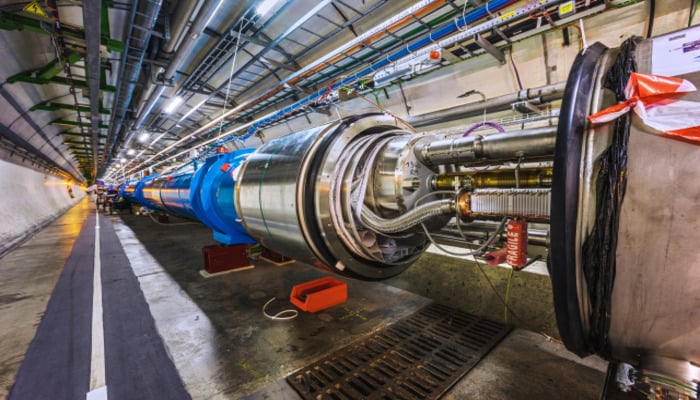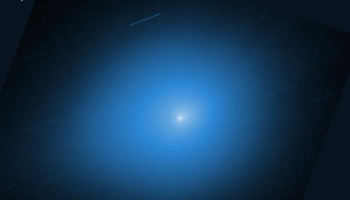
CERN, the European Organisation for Nuclear Research, harnessed the power of the world's most potent particle accelerator, the Large Hadron Collider (LHC), on April 8, during the total solar eclipse. Amid theories that suggest the universe contains undiscovered matter, the LHC underwent experiments aimed at unravelling the mysteries of dark matter.
The Large Hadron Collider (LHC) resumed its operations after a two-year break. The LHC is a 17-mile tunnel that shoots protons at nearly the speed of light, recreating the conditions that existed right after the Big Bang. Scientists believe that studying the obscure subatomic particles produced by the collisions could reveal significant discoveries about the universe's composition.
Despite initial challenges, including an aborted attempt due to beam trajectory issues, the LHC's recent tests have proven successful. Trillions of protons accelerate 11,245 times per second around the LHC accelerator ring when running at full power, falling short of the speed of light by only seven miles per hour. Researchers expect to find significant clues regarding the effects of dark matter on the formation of our cosmos.
The rare celestial event of a total solar eclipse in 2024, which was visible to millions throughout North and Central America, fell on the same day as the experiment. As the moon obscured the sun's rays, plunging daylight into temporary darkness, scientists seized the opportunity to probe the universe's secrets while observers glanced at the cosmic phenomenon.
According to the Daily Mail, the LHC's mission extends beyond particle physics, aiming to validate theories proposed by renowned physicist Professor Higgs in 1964. By studying the Higgs boson and its role in imparting mass to particles, scientists hope to unlock fundamental insights into the universe's origins and evolution, even amidst the excitement that surrounded the solar eclipse 2024.
















